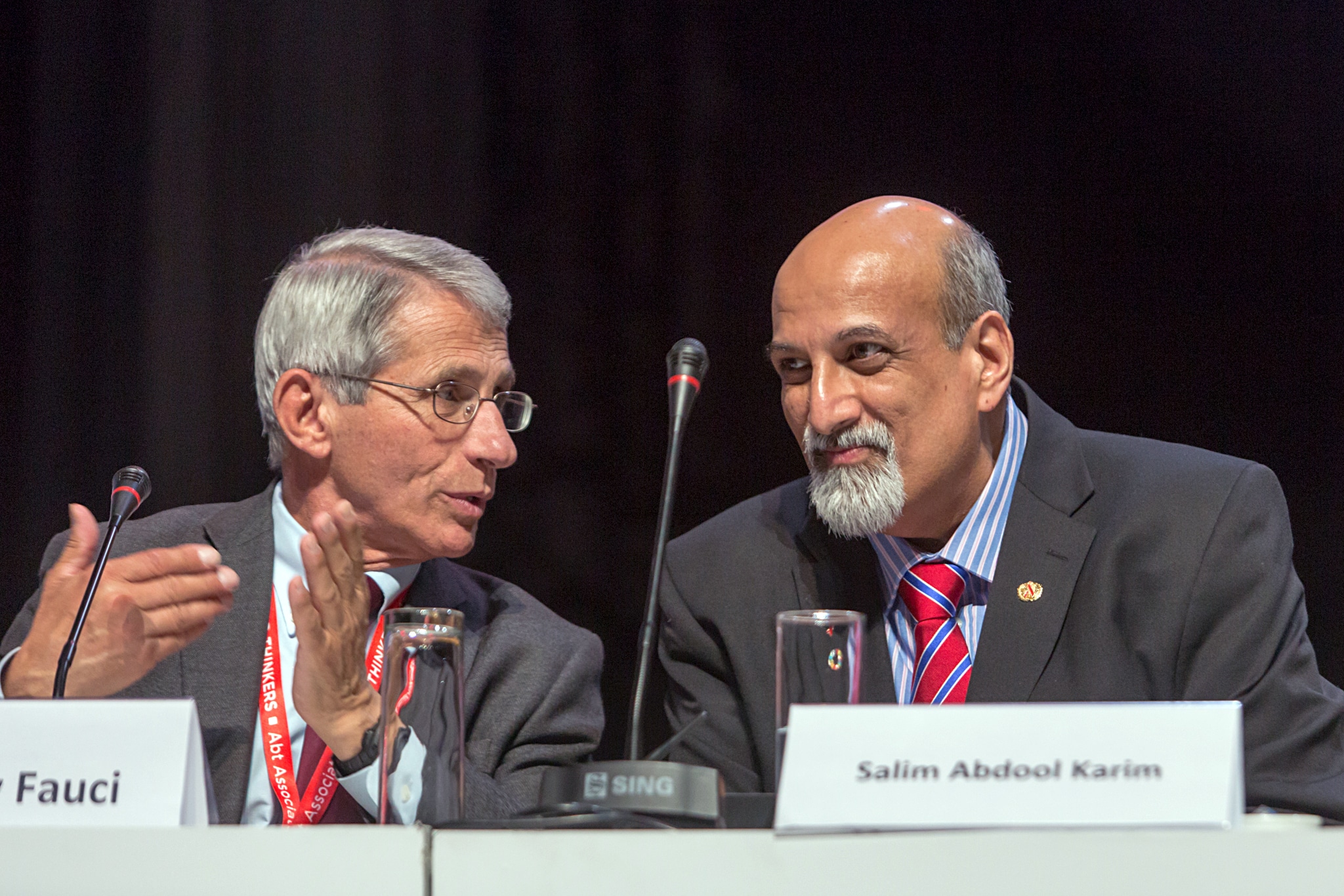TOPLINE The coronavirus mutation first identified in South Africa last year is 50% more contagious than previous strains, the country’s top scientists announced Monday, as high numbers of new daily coronavirus infections continue to put South Africa’s healthcare system under massive pressure.
KEY FACTS
Salim Abdool Karim, one of South Africa’s leading infectious disease experts — dubbed in the media as “South Africa’s Anthony Fauci” — confirmed suspicions that the country’s recent surge of infections is likely being driven by a new strain first detected in October, known as 501.V2.
Abdool Karim told The Sunday Timesa mutation in the strain changed the shape of the small protein spikes on the surface of the coronavirus cell, allowing it to better grip onto human cells and increase chances of infection.
“Almost one out of three tests are now positive and that is higher than anything we saw in the first wave,” he told the newspaper.
However, there’s no evidence to suggest the new variant is any more deadly or causes more severe symptoms, Abdool Karim said, though studies are being carried out to determine if coronavirus vaccines are effective against the strain, according to AFP.
Loading...
The strain has been detected around the world, including in Ireland, Israel, France and Japan.
KEY BACKGROUND
South Africa is struggling to manage its second wave of the pandemic, with the country counting 130,000 new infections and 4,000 deaths in just the past week. The increase has pushed the country’s hospitals to the brink. “As soon as beds open, there are more than 10 people waiting to fill them – we cannot cope,” a healthcare worker in Johannesburg told Al Jazeera. While the infectious new strain is a likely factor behind the surge, government officials have also blamed a recent festival period and people failing to follow social distancing measures. Late last month, the country announced nightly curfews and a ban on alcohol sales in a bid to stamp out new infections.
FURTHER READING
SAfrica virus strain more contagious, experts confirm (AFP)
Everything we know about 501.V2, the new Covid-19 variant identified in SA (Sunday Times)
-By Carlie Porterfield, Forbes Staff
Loading...
